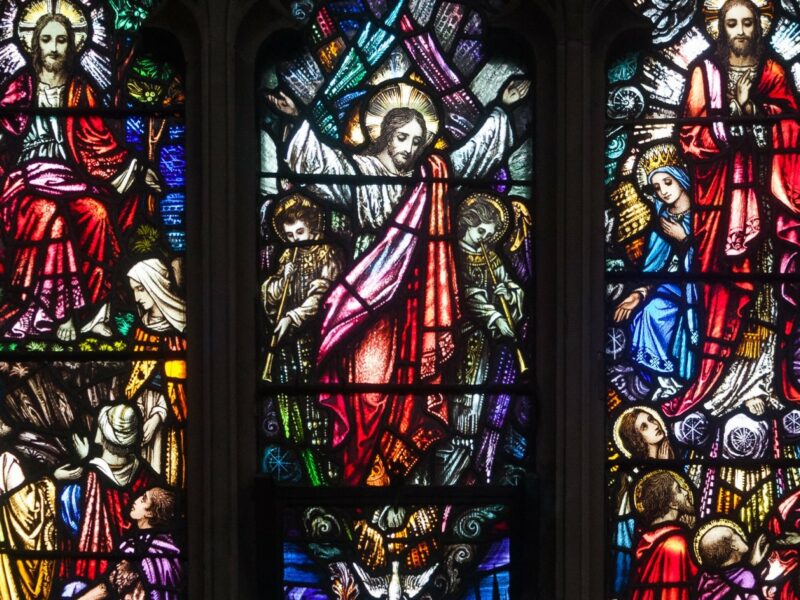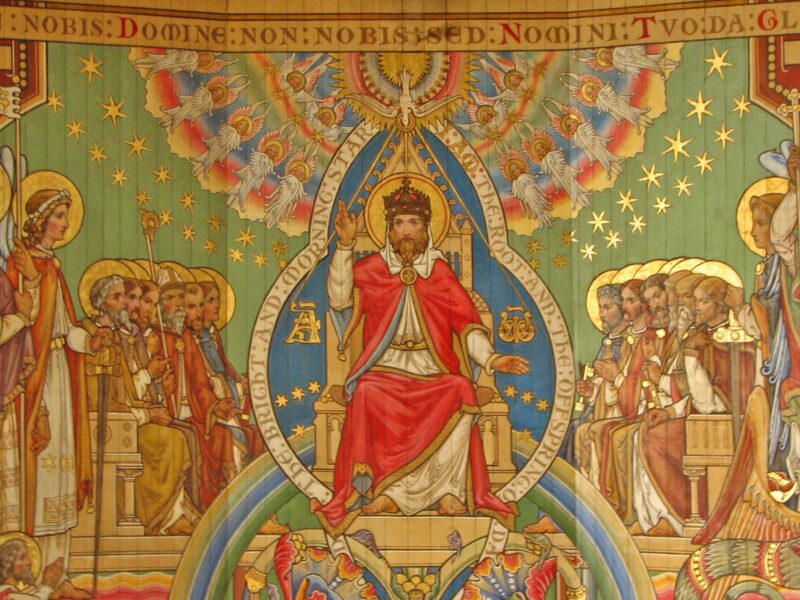
In All Humanity
Twenty-Ninth Sunday of the Year. Fr Duncan Campbell preaches on the difficulties and rewards of faith in today’s world.
To give any thought to religion is to find it difficult. It seems to fit less and less into the world we have learnt to understand. The old, clear picture of heaven above and hell below is the first to fade. Spirits, like God, and Angels, and Devils, drop out of the picture. Saints or sinners aren’t seen any more; there are people, and all are more or less like us.
Right and wrong turn into complex issues. Ideas, important in religion, like vocation, temptation, distraction, don’t mean anything these days, except perhaps in jokes. A glimpse into psychology would find hidden motives. Therapy could sort it all out.
So isn’t it best to join in the general, wary, non-committal attitude to religion?
If, dissatisfied, we do give religion some thought, we find it has its real difficulties. To be a Christian is to believe that Christ is God; the all-knowing, all-powerful God. The writings we have about him however record very many things hard to understand. He looks over Jerusalem and weeps, at its imminent destruction and the misery of his people. In today’s Gospel, he is overheard wondering if he ‘will find any faith on earth, when he comes again’. Couldn’t God simply arrange such things ?
Perhaps people were right to think ‘He’s just a man’. Then we should apologise to all Jews and Moslems and Hindus and Sikhs and Buddhists and anyone else concerned with religion. They would have said this all along. We could seek a reconciliation. It would be ‘one great leap forward for mankind’ to world peace. ‘Imagine…..’
However for millennia many good thoughtful people have maintained that Christ is God. Most of the things he said wouldn’t make real sense, unless he thought this himself. So there was a horrified rejection of him by his priests, and his crucifixion by Roman soldiers. Each had very important reasons for doing so — from things he said. There were no little misunderstandings that might easily have been cleared up.
In full view of this, we are made to repeat, every Sunday, a very solemn statement, that outlines, and underlines, the belief that he is God. True God, from true God.
It seems the hardest thing in the world to hold this real God in mind. An example is in the Gospel today, when he himself presents a picture of God — a pointedly dreadful one — as a judge who has to be nagged until he does his duty. There is this mischievous sense in it, in that humanly speaking it would work! We might even see the Gospel writer embarrassed, interjecting his interpretation: the ‘moral’ here is to ‘make us persevere in praying — and never lose heart’.
We may have found that in persevering we don’t get what we want. The most famous prayer, the ‘Lord’s Prayer’, if we reflect on it, seems to be asking for what is happening anyway. The second most famous prayer, in the Garden, was answered very strangely; since we have to believe that God is asking God as Son to Father, for life; receiving no answer — unless a lesson in obedience is the answer.
These mysteries ‘are hidden from the learned and the clever, and revealed to children’. Adult arrogance is seen in making out mysteries to be problems, and outside of us, to be solved out there, somehow, by our considered unproblematic selves. Childhood is problematic. Things appear, and loom, and events impact. (The ‘speedily’ used here in the Gospel may mean this ‘impact’ when they happen).
This is the true path of every human life. Children are much less familiar with the settled, realistic times and places in our ‘determined’ adult world. They are as a result much more familiar with the unsettling and unrealistic prospects of faith and hope and love. Many adults have ‘lost heart’ and have lost all these. A human God is needed to reveal to us in all humanity these areas of faith and hope and love and so rescue us from being lost.
His last remark really speaks to each of us, directly, now. Will you find faith in you?


